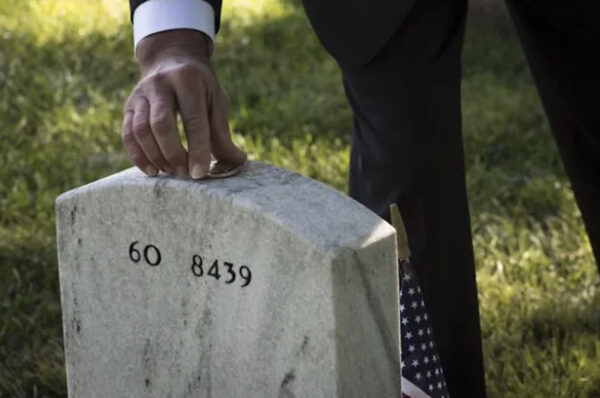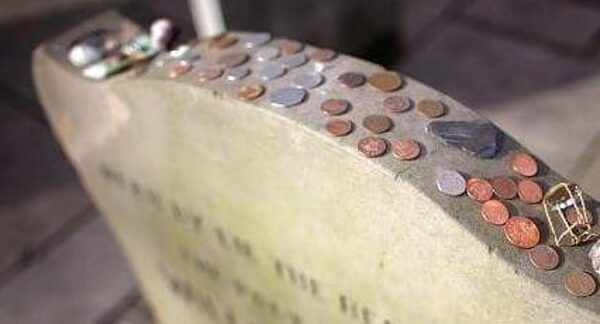In our diverse world, each of us has unique ways of remembering and honoring those who have passed away. It’s essential to respect the traditions of others when it comes to celebrating the lives of our lost loved ones. Sometimes, these customs might seem unfamiliar, but they hold deep significance for those who practice them.
One such tradition involves the placing of coins on gravestones, a practice observed in cemeteries across the United States and beyond. But why do people leave coins on gravestones, and where did this custom originate?

The tradition of placing coins on gravestones has captured the curiosity of many, including myself, from a young age. While some mistakenly attribute its origins to ancient military practices in the Roman Empire, a closer examination reveals a more recent origin.
Contrary to popular belief, the custom can be traced back to the Vietnam War era, marking a poignant connection to military service and sacrifice.
During the Vietnam War, leaving coins on gravestones served as a tangible symbol of remembrance and acknowledgment of the fallen soldiers. At a time of political divisiveness surrounding the war, this practice offered a respectful alternative to potentially contentious interactions with grieving families.
As documented by the American Legion Website, leaving a coin signified that a visitor had paid their respects without engaging in potentially sensitive discussions about the war’s politics.
Each type of coin left on a gravestone carries its own significance and symbolism.

A penny left on a headstone signifies that the visitor has simply paid their respects and acknowledges the presence of the deceased.
A nickel, on the other hand, may indicate that the visitor served in boot camp alongside the departed individual.
Furthermore, a dime represents shared experiences and time served in the military together. Finally, a quarter left on a gravestone communicates that the visitor was present during the time of the individual’s death, offering a poignant reminder of their connection to the departed.
It’s said it can be traced back to the Vietnam War, with a page on the American Legion Website writing:
“Due to the political divide in the country over the war, leaving a coin was seen as a more practical way to communicate that you had visited the grave than contacting the soldier’s family, which could devolve into an uncomfortable argument over politics relating to the war.”
Other reasons for leaving coins on gravestones including veterans honoring their fallen comrades, sometimes placing the coins to buy them a beer.
Have you ever seen a coin left on a gravestone? Did you know what it meant? Let us know in the comments.







